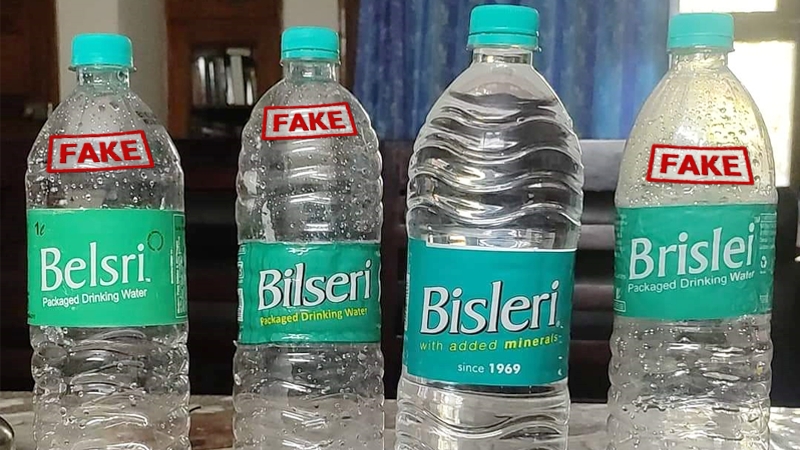In a startling revelation that raises serious concerns about consumer safety and regulatory oversight, officials in Greater Noida have uncovered a large-scale counterfeit bottled water operation selling products under the misleading label “Bilseri,” a deliberate misspelling of the popular Bisleri brand.
The raid, conducted by the Food Safety and Drug Administration (FSDA) on Tuesday, resulted in the seizure of over 13,000 one-liter bottles from two unlicensed bottling units operating in violation of food safety regulations. Officials confirmed that the seized bottles were being marketed as drinking water, bearing fake labels closely mimicking the trusted Bisleri packaging.
The operation was initiated following a specific intelligence input about spurious bottled water being circulated in the region. “These were unauthorized manufacturing units with no valid license or FSSAI (Food Safety and Standards Authority of India) approval. The intent was clearly to deceive the public,” said one senior official involved in the enforcement action.
Public Health at Risk as Fake Water Floods Market
This is not an isolated incident. In October 2024, a similar controversy emerged in Baghpat district when the District Magistrate was inadvertently served a counterfeit “Bilseri” bottle during an official government function. That case resulted in a high-profile crackdown, including the bulldozing of an illegal packaging warehouse and the destruction of over 2,600 fake water bottles.
The recurrence of such operations has brought to light the broader challenge of counterfeit fast-moving consumer goods (FMCG) in India, where low-cost imitations of trusted brands regularly make their way into retail and hospitality spaces, often without scrutiny.
“This is not just a matter of brand infringement,” said consumer rights activist Reema Tandon. “This is a direct threat to public health. Consuming untreated or contaminated water can lead to severe health consequences, especially in rural and semi-urban areas where regulatory checks are weaker.”
Authorities Urge Vigilance, Promise Continued Crackdowns
Officials have dispatched samples of the seized “Bilseri” bottles for laboratory testing to determine the potability and safety of the contents. Meanwhile, both factories have been sealed, and legal proceedings under the Food Safety and Standards Act have been initiated.
The Food Safety Department has also issued a public advisory, urging consumers to carefully inspect labels on packaged drinking water. Authentic bottles, they noted, carry FSSAI certification numbers, correct spelling of brand names, tamper-proof seals, and batch manufacturing details.
The Bisleri company, a household name in India’s bottled water industry, has not issued a formal comment but is expected to cooperate with authorities on further investigations.
As India’s bottled water market continues to expand — driven by urban demand, rising temperatures, and inadequate municipal supply — so too does the risk of unregulated and counterfeit alternatives. This latest bust in Noida serves as a grim reminder that in the battle between profit and public safety, vigilance remains the first line of defense.


